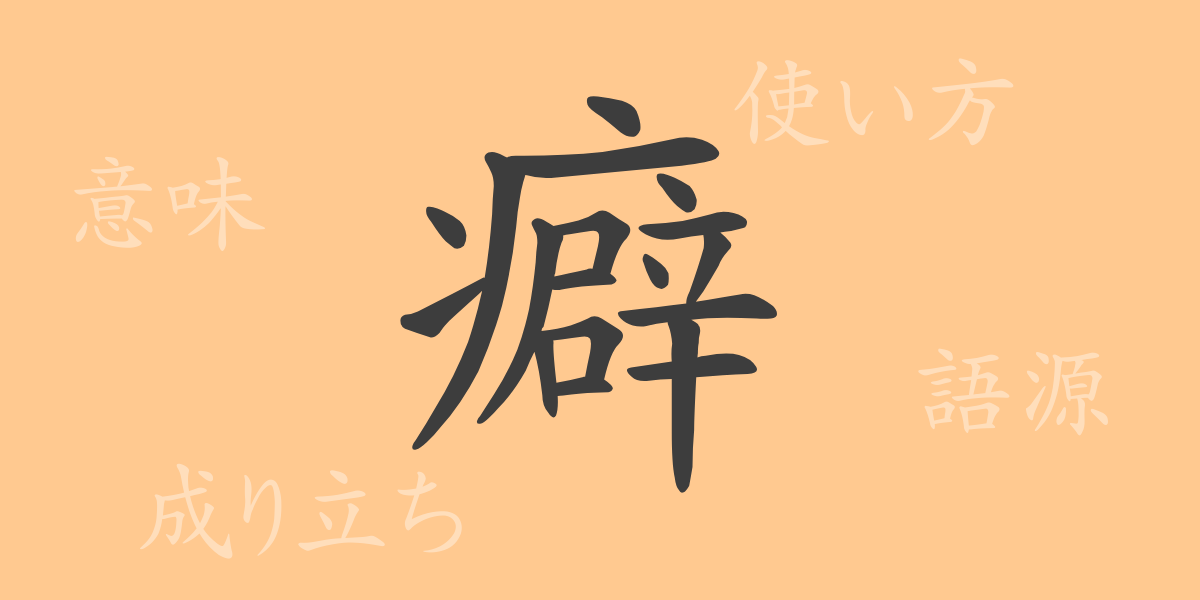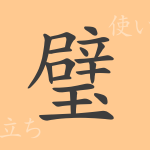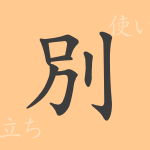In our daily lives, there are actions and thought patterns we perform unconsciously. This is the meaning behind the character “癖 (くせ, kuse).” However, this seemingly simple kanji carries a deep history and rich usage. In this article, we will explore the origins, meanings, and uses of the common Japanese kanji “癖 (くせ, kuse)” and delve into its fascinating aspects.
The Origin of 癖 (くせ, kuse)
The origin of the kanji “癖 (くせ, kuse)” dates back to ancient China. Originally, it referred to the way plants bend and lose their natural shape. Over time, it came to signify distinctive tendencies in human behavior and personality, and now it is used in various contexts.
The Meaning and Usage of 癖 (くせ, kuse)
The character “癖 (くせ, kuse)” means “a tendency in behavior or thought that appears unconsciously in specific situations.” It is also used to describe the characteristics or nature of things. For example, “彼女の話し方には癖がある (かのじょのはなしがたにはくせがある, Kanojo no hanashikata ni wa kuse ga aru)” means “She has a peculiar way of speaking,” and “この布には特有の癖がある (このぬのにはとくゆうのくせがある, Kono nuno ni wa tokuyu no kuse ga aru)” means “This fabric has a unique characteristic.” It is used to express the individuality of people or things.
The Reading, Stroke Count, and Radical of 癖 (くせ, kuse)
Here is some basic information about the kanji “癖 (くせ, kuse)”:
- Reading: In on-yomi (音読み, on’yomi), it is read as “ヘキ (へき, heki),” and in kun-yomi (訓読み, kun’yomi), it is read as “くせ (kuse).”
- Stroke Count: Although “癖 (くせ, kuse)” appears to be a complex kanji with over a hundred strokes, it actually consists of 13 strokes.
- Radical: The radical of this kanji is “白 (しろ, shiro).”
Idioms, Proverbs, and Phrases Using 癖 (くせ, kuse)
Here are some idioms, proverbs, and phrases that include “癖 (くせ, kuse)”:
- “癖になる (くせになる, kuse ni naru)”: When something is done repeatedly and becomes a habit.
- “癖が強い (くせがつよい, kuse ga tsuyoi)”: Having a strong personality or distinctive features that stand out from others.
- “癖もの (くせもの, kusemono)”: Refers to an eccentric person or thing.
Summary of 癖 (くせ, kuse)
The kanji “癖 (くせ, kuse)” is highly suitable for expressing our behaviors and the characteristics of things. It plays a role in capturing human diversity and the individuality of objects. Through this article, we hope you gain a deeper understanding of the meaning and usage of “癖 (くせ, kuse)” and rediscover the richness of the Japanese language.

























